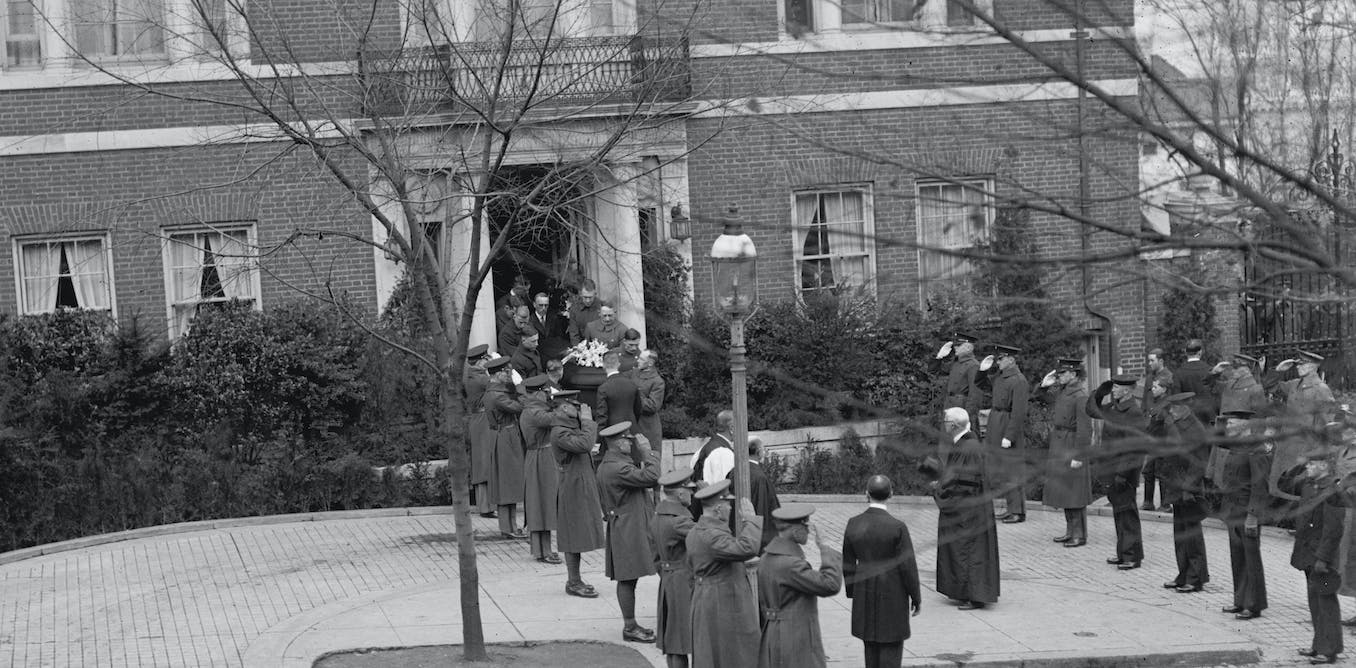Woodrow Wilson, the 28th President of the United States, suffered a precipitous decline in reputation and esteem. Once considered an honored figure, Wilson is now criticized for suppressing free expression during World War I and implementing racial segregation in federal hiring. Furthermore, his decision to remain in office despite his declining health was seen as a lapse in judgment, eventually leading to the passing of the 25th Amendment to address such situations. Wilson’s health deteriorated after collapsing from an ischemic stroke in 1919, leaving him incapacitated for the remainder of his presidential term. His wife, Edith, acted as his de facto chief of staff, managing his paperwork and determining which matters of state were important enough to bring to his attention.
Wilson’s health issues began during a marathon speaking tour across the country to rally support for American membership in the League of Nations. Despite being warned by his personal physician, Wilson insisted on continuing the tour due to his belief in the importance of the league. However, his collapse ultimately prevented him from pushing for the ratification of the Treaty of Versailles and American membership in the League of Nations. The treaty was ultimately rejected by the Senate in 1920.
During his convalescence, Edith Wilson and his team of doctors obfuscated and lied about his health. She managed all of his paperwork and excluded others from decision-making processes, effectively acting as a regent. The media at the time showed deference to the office of the president, refraining from speculating about the full extent of Wilson’s infirmity. However, as time went on, the absence of a visible president became too conspicuous to ignore.
Wilson’s health remained in decline until his death in 1924. He made a public appearance in 1920 but was described as frail and weak. In the presidential election of 1920, the voters chose Warren G. Harding, who promised a “return to normalcy.” Wilson’s reputation suffered even more as his successor’s robust health was contrasted with his own frailty. Wilson outlived Harding but died on February 3, 1924. The day after his death, it was reported that he had been a “shadow of his former self” since his collapse in 1919.









